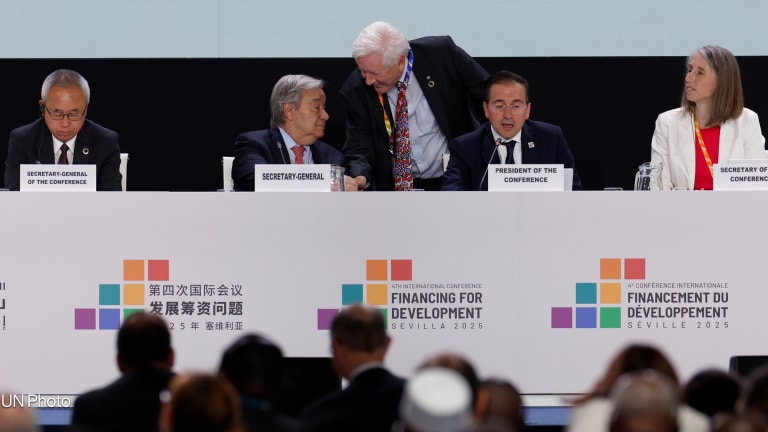The United Nations’ top official for disaster risk reduction is calling on governments, lenders, and the private sector to ensure that risk reduction is fully embedded in every aspect of development finance, warning that crisis-response funding alone will not prevent mounting losses.
Kamal Kishore, the U.N. secretary-general’s special representative for disaster risk reduction and head of UNDRR, told Devex that while countries know more than ever about the risks they face, that knowledge still fails to shape mainstream planning and investment.
“I think our understanding of disaster risk is at an all-time high. We have a better way of modeling different kinds of hazards. We have a better way of keeping track of exposure. ... But all of that understanding is not underpinning our development thinking, unfortunately,” he said on Monday during an interview at Casa Devex in Sevilla, Spain, on the sidelines of the Fourth International Conference on Financing for Development, or FFD4.




